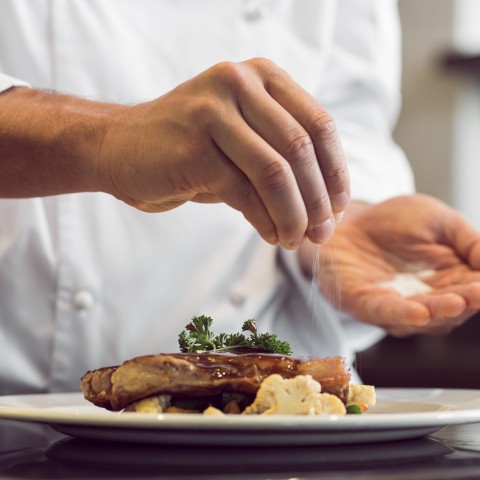Hacer un cumplido, lanzar un piropo, or un halago: to compliment someone in Spanish.
Spanish is a Latin language, also known as one of the romance languages. While this doesn’t mean the language is romantic by nature, there are plenty of sweet Spanish compliments you can offer someone to warm their heart.
So, how do you say “compliment” in Spanish? Compliments in Spanish are known as piropos, halagos, or cumplidos.
If you’re planning to travel to Spain or Latin America, you’ll come across many of those. You’ll be amazed by how we compliment anyone on anything. It’s our way of encouraging each other!
Whenever I’m with some foreigner friends around my city, they’re always in awe about how we naturally call anyone guapo or guapa. This is certainly different from other Eastern European cultures, where people are more discreet and reserved.
Ever wonder how to compliment someone in Spanish? Well, you’re in the right place. In this article, you’ll learn how to compliment in Spanish, whether to get the attention of someone you like, give your compliments to the chef after eating a delicious meal, or congratulate your coworkers after a presentation.
Sometimes body language can be enough. But we don’t usually keep compliments to ourselves!
- Compliments in Spanish About How Someone Looks
- Compliments in Spanish for Someone’s Work
- Compliments in Spanish About Someone’s Personality or Lifestyle
- Compliments in Spanish on Someone’s Skills
- How to Make Your Compliment in Spanish More Sincere
- What to Expect After Giving Compliments in Spanish
- Conclusion
1. Compliments in Spanish About How Someone Looks
Compliments are very common in the Spanish-speaking world, whether they’re used to flirt with, seduce, or praise someone. If you’ve just started learning Spanish, it may be hard to understand when you’re being complimented, or even how to compliment someone naturally. Here, we’re going to cover some nice Spanish compliments you can use to let someone know you like them (or just like their style).
Learn how to say a compliment in Spanish to a woman:
- Qué guapa eres.
“How pretty.” - Eres muy bonita.
“You are beautiful.” - Estás muy guapa.
“You are very pretty.” - Estás muy bonita hoy.
“You are very pretty today.” - Te ves muy guapa.
“You look beautiful.” - Qué guapa, ¿no?
“How pretty, aren’t you?”
You can find out more about adjectives and how they work in our complete guide to Spanish Adjectives on SpanishPod101, or our related vocabulary list.
Now, here are some Spanish compliments to a man:
- Qué guapo.
“How handsome.” - Qué bonito.
“How handsome.” - Te ves muy guapo hoy.
“You look handsome today.”
There are some adjectives that can be used for both men and women.
- Tienes unos ojos muy hermosos.
“You have beautiful eyes.” - Tienes una sonrisa muy bonita.
“You have a beautiful smile.” - Qué elegante.
“Looking elegant.” - Te ves muy bien.
“Looking very good.” - Haces que quiera ser una mejor persona.
“You make me want to be a better person.” - Tienes un cabello muy bonito.
“You have beautiful hair.” - Tienes unas manos muy bonitas.
“You have beautiful hands.” - Me encanta tu vestido.
“I love your dress.” - Te quedan muy bien esas gafas.
“You look good with those glasses.”
Looking for some cute Spanish compliments? Here’s how you can praise a lovely couple:
- Qué linda pareja.
“What a beautiful couple.”
If you want to compliment on someone’s clothes, such as a jacket, tie, or blouse, you can say something like:
- Qué lindo/a______.
“What a beautiful______.” - Qué linda chaqueta.
“What a beautiful jacket.” - Qué chula tu chaqueta.
“Your jacket looks cool.” - Esa camiseta te queda muy bien.
“That shirt looks very good on you.”
2. Compliments in Spanish for Someone’s Work
If you’re learning Spanish because you’re planning to move to a Spanish-speaking country for work, this section is for you. Learn some compliments in Spanish to praise someone for their work.
Or perhaps you want to know how well you’re doing your job. We all like to get some compliments sometimes, so you should understand a compliment in Spanish if you get one.
- Buen trabajo.
“Good job.” - Lo has hecho muy bien.
“You did very well.” - Me ha encantado la presentación.
“I loved your presentation.” - Qué idea tan genial.
“What a great idea.” - La manera en que has solucionado el problema fue genial.
“The way you approached the issue was amazing.” - Solo has estado estudiando español tres meses, pero hablas muy bien.
“You have only been studying Spanish for three months, but you speak very well.” - Tu curriculum es impresionante.
“Your CV is impressive.”
For more good Spanish compliments for the workplace, study our vocabulary list of the Top 15 Compliments in Spanish that you always want to hear.
3. Compliments in Spanish About Someone’s Personality or Lifestyle
It’s always awesome to hear compliments from friends and family because it reinforces the way they see us. If you want to praise someone in Spanish on an aspect of their personality, this section is for you. Make them feel good with these compliments in Spanish.
- Juan es muy buena persona.
“Juan is a very good person.” - María es muy trabajadora. (female)
“María is a hard worker.” - Pedro es muy trabajador. (male)
“Pedro is a hard worker.”
The following adjectives can be used for both men and women. Remember that you have to change the last letter of the adjective depending on the subject’s gender: -o for masculine and -a for feminine.
- Eres un aventurero(a).
“You are adventurous.” - Luis is muy cariñoso.
“Luis is very affectionate.” - Estás siempre alegre.
“You are always cheerful.” - Pareces muy seguro (a).
“You look very confident.” - Marta es muy coqueto.
“Marta is very flirtatious.” - Manuel es muy simpático.
“Manuel is very friendly.” - Eres muy divertido (a).
“You are funny.” - Eres muy gracioso (a).
“You are very funny.” - Estás en buena forma.
“You are in good shape.” - Abigail es una mujer Independiente.
“Abigail is an independent woman.” - José es muy inteligente.
“José is very smart.” - Martha es muy interesante.
“Martha is very interesting.” - Manuel es muy tranquilo (a).
“Manuel is very laid back.” - Mary es muy amable.
“Mary is very nice.” - Jorge is muy abierto (a).
“Jorge is very open-minded.” - Santiago es muy romántico (a).
“Santiago is very romantic.” - Lucía es muy sexy.
“Lucía is very sexy.” - Esther es muy dulce.
“Esther is very sweet.”
4. Compliments in Spanish on Someone’s Skills
You can also compliment someone in Spanish about their skills by following this formula. Fill in the blank with the verb or action you want to reinforce:
- Tú _____ muy bien. Ex: Tú cocinas muy bien.
“You ____ well.” Ex: “You cook very well.”
In Spanish, you can use the pronoun tú if you want. Let’s check some examples:
- Tú cantas muy bien.
Cantas muy bien.
“You sing well.” - Tú escribes muy bien.
Escribes muy bien.
“You write well.” - Tú cocinas muy bien.
Cocinas muy bien.
“You cook well.” - Juegas al fútbol muy bien.
“You play football very well.” - Pintas muy bien.
“You paint very well.” - Hablas muy bien español.
“You speak Spanish very well.”
When you’re complimenting a thing, you’re also indirectly praising the person with (or responsible for) that thing as well. For example, if you say that a song is beautiful, you’re praising the singer; if you’re amazed by how a dish tastes, you’re praising the cook.
Let’s see how to praise in Spanish:
- Esta comida está deliciosa.
“This food is delicious.” - La película es muy divertida.
“The movie is very funny.” - La fotografía era espectacular.
“The picture was spectacular.” - La comida huele muy bien.
“The food smells very nice.” - Qué buena pinta tiene la comida.
“The food looks amazing.”
5. How to Make Your Compliment in Spanish More Sincere
In this section, you’ll learn how to say a compliment in Spanish and sound sincere.
When you’re complimenting someone in Spanish, you should look them in the eyes; sometimes you can touch the other person on the shoulder or even give them a hug (really!). Yes, you will know when and to whom. Remember that in Spain and Latin America, it’s okay to touch each other.
Smile while delivering the compliment, and don’t expect anything in return (although you may get a sincere thank you or a compliment from the person).
These are some things you should not do when complimenting someone in Spanish (and actions to watch out for in others):
- You should not over-compliment someone in Spanish. Sometimes when people compliment for the sake of it, the compliment loses value.
- Sometimes people compliment you because they want something in return. Well, you should not do that to someone, and you need to know when someone is doing it to you. How can you know?
Well, they usually won’t look you in your eyes, and they’ll have a fake smile. Sometimes you can sense it, but just because Spanish isn’t your first language, you may get confused.
You can find these types of people outside of the touristic sites in Spain. They’ll tell you something nice, expecting you to buy something in return.
When you’re being complimented, be humble and try to offer the person a compliment in return. You can also just say: Gracias muy amable. (“Thanks, you are very kind.” )
6. What to Expect After Giving Compliments in Spanish
When you’re complimenting someone in Spanish, you should always say thank you (even if you don’t really agree). Otherwise, you may come across as rude.
In the Spanish-speaking world, you’ll get compliments on anything you do. So here are some tips on how to reply when you get a compliment in Spanish.
- Gracias, eres muy amable.
“Thanks, you are very kind.” - Gracias por el cumplido.
“Thanks for the compliment.”
How a person feels after receiving a compliment depends on the person’s personality. You may encounter someone who feels very comfortable with the compliment, and simply thanks you for it.
On the other hand, some people may be very shy and uncomfortable, and don’t say anything at all. Don’t take it personally.
You may also compliment someone who’s very humble, in which case you may get a reply such as:
- Gracias por el cumplido, pero cualquier persona puede hacerlo.
“Thanks for the compliment, but anyone could do it.” - Gracias, pero podría haberlo hecho mejor.
“Thanks, but I could have done it better.” - Gracias, pero no creo que lo haya hecho tan bien.
“Thanks, but I don’t think I have done well enough.”
Either way, you should always express your gratitude when getting a compliment:
¡Gracias!
7. Conclusion
In this guide, you’ve learned the most common Spanish compliments, how to compliment a girl or a boy, how to thank the cook after a delicious meal, plus some praising words in Spanish. Would you like to know more about compliments in Spanish? Do you feel ready to express gratitude and praise someone in Spanish?
SpanishPod101 has many resources, from vocabulary lists, audio recordings, and more free content to boost your learning and keep it entertaining and fun.
Good luck!

















